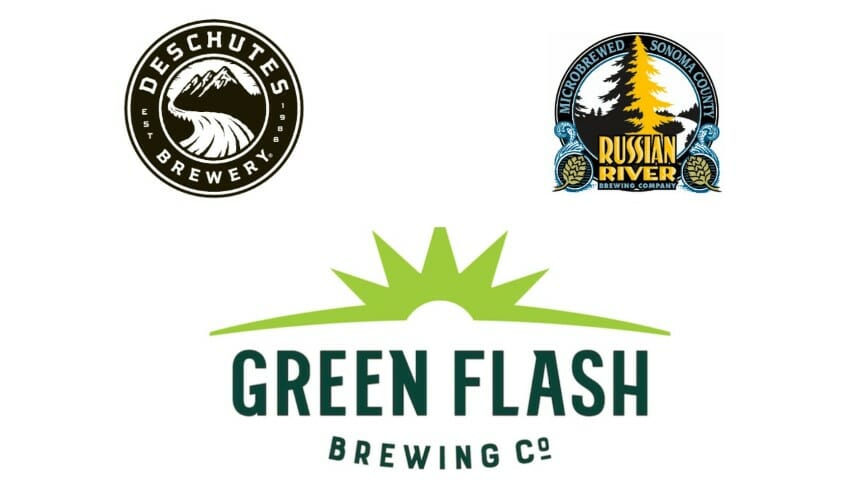Brewery Employees Are Being Laid Off En Masse, Thanks to Coronavirus
Photos via Deschutes, Green Flash Brewing,
The novel coronavirus known as COVID-19 has devastated countless U.S. and global industries already, but one especially near and dear to Paste’s heart has been feeling the pinch with particular acuity: Craft breweries.
Put simply, the pandemic has stolen the very lifeblood of these small breweries, especially those young and modern brewing operations that depend largely upon on-premise, taproom draft beer sales to make ends meet. And unfortunately, those on-premise sales had increasingly been key to the business model of newer breweries, giving them a niche to fill in local communities if they couldn’t compete against larger, regional breweries in the supermarket aisle. It was a good system … until all the taprooms were shut down by the coronavirus. Now, those breweries are all hanging in limbo, trying to make it to the distant light at the end of the tunnel by falling back on to-go sales and beer delivery.
Even with generous patrons doing their best to chip in, though—my wife and I have been trying to support all our favorite Richmond, VA breweries this way—these to-go sales can never really match what breweries are able to sell through their normal distribution channels or ful-time taprooms. And thus, a wave of terminations and layoffs has been cascading through the craft beer industry, and it’s been brutal to watch. From the smallest, newest breweries, all the way up to some of the largest regionals in the game, everyone seems to be feeling the pain. The entries below represent only a tiny example of the many reported stories of industry layoffs right now.
— Deschutes became one of the largest major regionals to resort of mass layoffs so far, laying off approximately 60% of its workforce—around 250 to 300 workers—across the breadth of the company, including taproom employees, packaging/bottling employees and even brewers. And for some employees, layoffs actually represented a better option than vastly reduced hours, as it allows them to file for unemployment. Despite that, Deschutes founder Gary Fish still referred to the decision as “gut wrenching.”
“It’s extremely difficult, particularly when it’s not of our own making,” Fish said Wednesday. “We have to remain safe and take care of our community and make sure our business remains at the end of this. We’re still producing beer.”
— Santa Rosa’s beloved Russian River likewise was forced to close down its taprooms for on-site business and has ultimately furloughed a whopping 90% of its staff—about 175 employees—according to co-founder Natalie Cilurzo. Those furloughed workers will be eligible for unemployment benefits, and Russian River’s health benefits plan will continue to cover them through April regardless of whether they’ve worked … but what happens afterward isn’t clear. That uncertainty is a universal aspect of the viral pandemic.